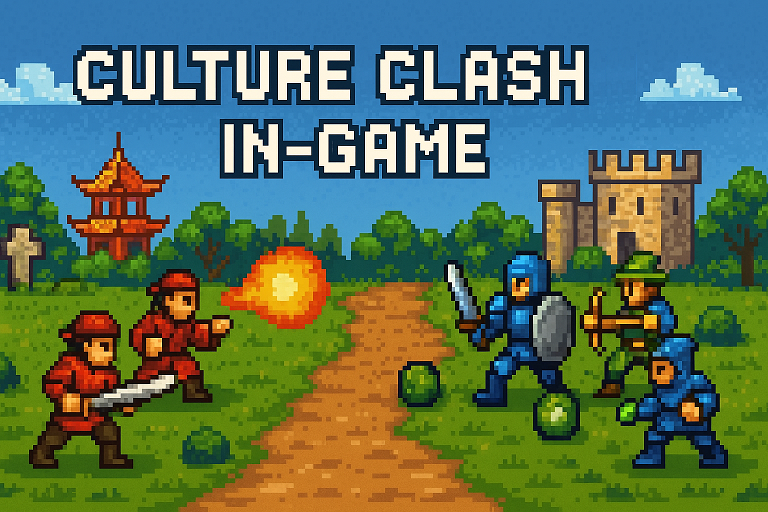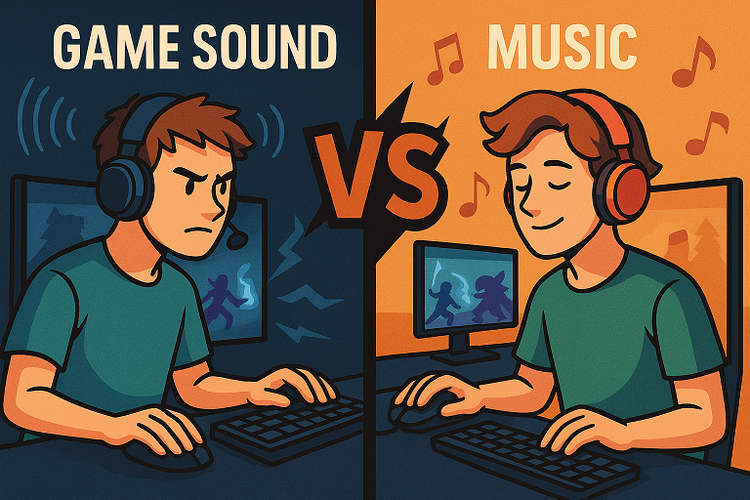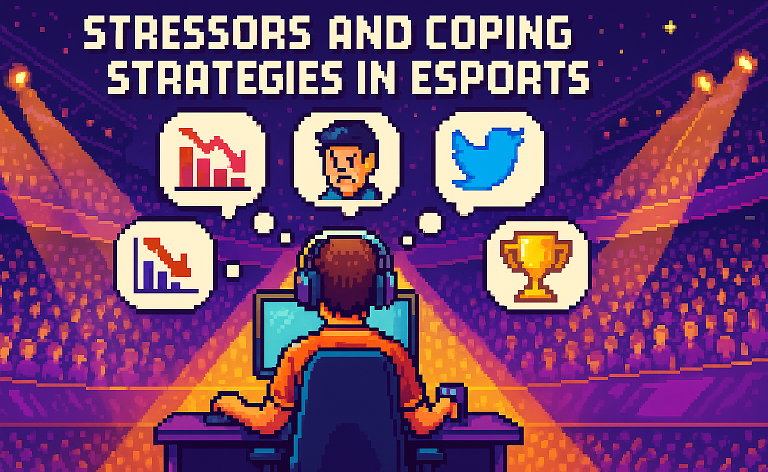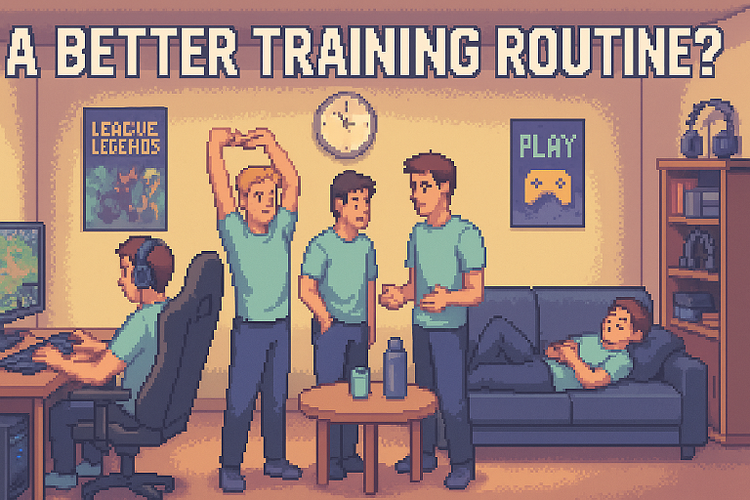The best way to warm-up and improve in-game Performance
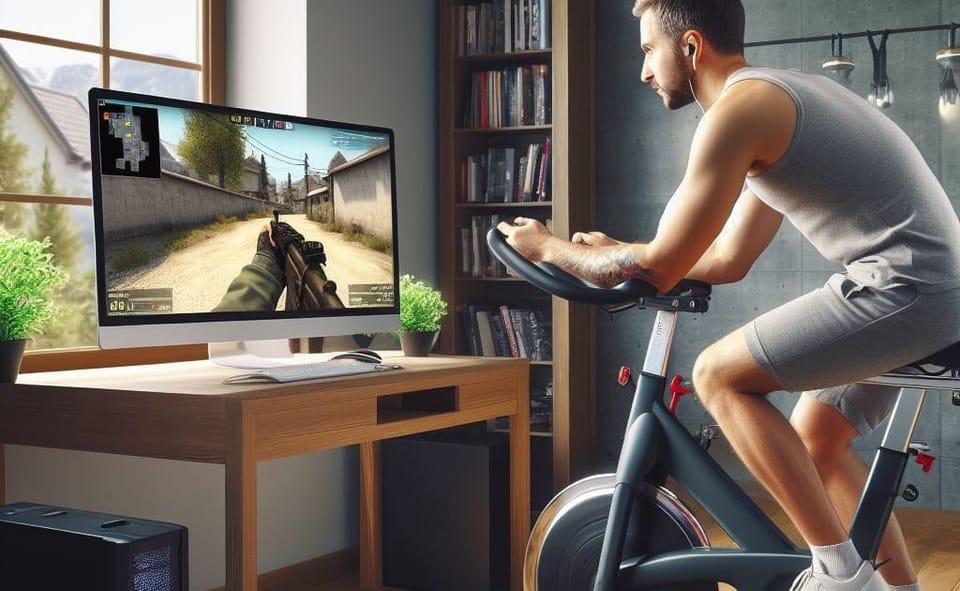
Welcome everyone to a new episode of Gaming Science.
In this newsletter, we'll discuss the impact of warm-up routines on gaming performance, a topic chosen by you all earlier this week. Specifically, we'll explore the effects of different warm-up types—physical and cognitive—on speed and accuracy during gameplay.
• Speed and accuracy play a vital role in game performance - casual and professional.
• Physical and cognitive exercise are know to improve cognitive function (relevant for gaming).
• No clear PE/CE protocol exists to improve performance.
• Physical exercise (20 min. cycling with a 90 sec. rest) before playing improved accuracy and speed.
• Physical exercise also improves health and well-being.
• Playing other games may yield benefits when used to warm-up.
• Both PE and CE seem to work, but more research is needed to clarify the relationships and benefits.
In most video games, especially major esports titles, speed and accuracy play a vital role and contribute to performance. Whether we (casual gamers) aiming to climb the ladder or professional players (striving to win tournaments), finding ways to improve these two skills is crucial.
From other research, we know that FPS games require short reaction times [1], good executive functions [2], and mental flexibility [3]. Both physical exercise (PE) and cognitive exercise (CE) are known to improve cognitive function and other aspects relevant to gaming performance [4, 5].
However, there is no clear PE/CE protocol to improve cognitive function yet that would ultimately lead to increased gaming performance.
Therefore, the study we're looking at today aims to "[...] evaluate the influence of PE, CE or both on the potential gains in performance during a CS:GO action game session. [1]"
📊 Method
In order to develop a protocol, 20 CS:GO players participated in an experiment. Their task was to eliminate 250 bots in a custom CS:GO aim botz map as fast as possible (speed) and with as few bullets as possible (accuracy). Before that, participants had either no exercise (warm-up), CE only, PE only, PE and CE, or CE and PE. Warming up cognitively meant practicing in CS, whereas PE consisted of 20 min of moderate cycling.
🚴♂️ Results
The primary finding of the study is that physical exercise (20 minutes of cycling with a 90-second rest before playing) significantly improved both measures (accuracy and speed).
"More specifically, engaging in physical activity [...] demonstrated an increase of 7.6% in time gain to complete the task without compromising accuracy (average number of shots taken to eliminate a target). [1]"
Now, one reason why players were able to eliminate the targets more quickly was due to increased accuracy; the fewer bullets you need (quicker kills and fewer reloads), the faster you can move on to the next target.
The authors also found a "mild improvement" in performance when players had a cognitive warm-up (AimLabs) compared to those who had no warm-up.
🤔 Implications
The results of this study are really a callout for physical exercise before sitting down and playing. Firstly, the beauty about this is that it not just improves your in-game performance, but also gives you another reason to be physically active. That, in turn, will lead to improved health and well-being.
"Secondly, [...] the practice of a CE like AimLab for around 20 min, regularly used by expert players, might not be the best way to optimize performance. [1]"
This is quite a tricky one. Apparently, using the game you're about to play doesn't seem to give you a good bang for your buck. However, practicing a different game may actually work well as a warm-up. For instance, one study found that playing the rhythm game "Osu!" improved cognitive performance.
Similarly, other games (e.g., StarCraft 2) yield benefits for playing other games, as a DotA2 progamer explains in this recent clip, stating:
"I always play RTS. [...] Sometimes, I don't play and I feel like, how to put it, DotA makes your fingers lazy [...]. When I get to the speed I want to [when playing StarCraft], I got to DotA and it's like come on... [7]"
Unfortunately today, I cannot tell you which type of warm-up works best for you or has the biggest impact. However, it appears that both physical and cognitive warm-ups seem to work in order to improve your in-game performance. As mentioned before, physical exercise seems to work especially well and has additional advantages for your health.
Thanks for reading, and I hope you all have a great week. C u next week,
Christian 😃
Join over 250+ (🤯) Gaming Science subscribers and become smarter every week.
"I love this type of content, thank you Chris."
References 📜
[1] Dos Santos et al., 2024
[2] Bediou et al., 2018
[3] Colzato et al., 2010
[4] Hine, & Itoh, 2018
[5] Toth et al., 2020
[6] Hagiwara et al., 2020
[7] Interview with Timado on X (April, 10th, 2024)

